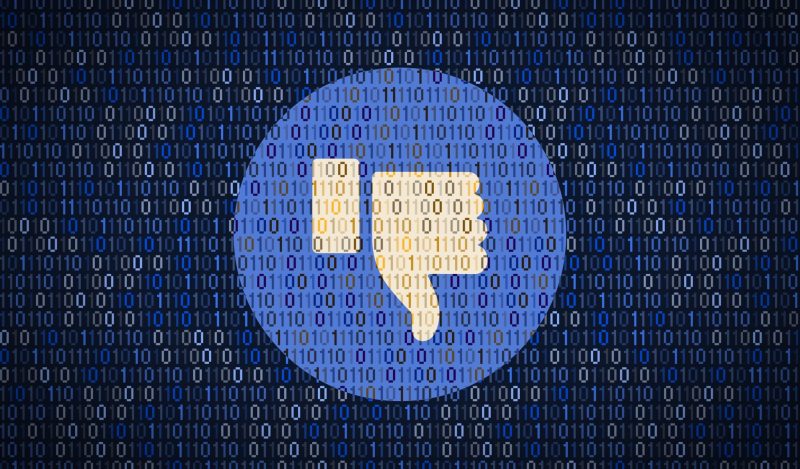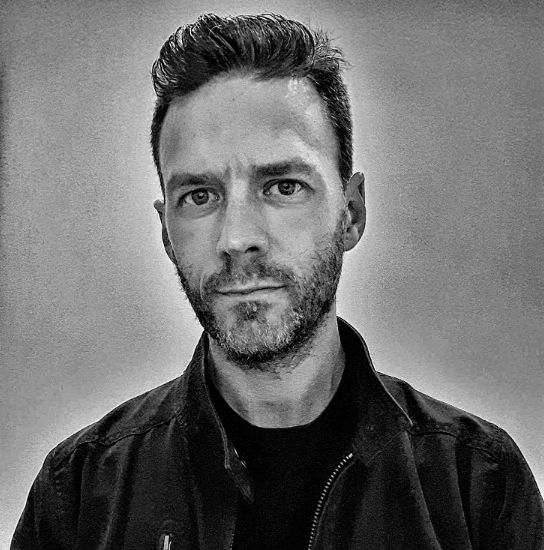On August 27, Meta CEO Mark Zuckerberg issued a statement confirming what the Twitter Files, Murthy vs. Missouri, and many others had long claimed – that the Biden administration aggressively pushed to censor First Amendment-protected speech on social media, in particular relating to Covid-19 and the Hunter Biden laptop.
In the case of Covid, Zuckerberg writes that the Biden White House “repeatedly pressured our teams for months to censor certain Covid-19 content, including “humor and satire.”
Zuckerberg also notes that the “FBI warned us about a potential Russian disinformation operation about the Biden family and Burisma,” a Ukrainian energy company that Hunter Biden sat on the board of. The laptop was not “disinformation”, it was real and Twitter and Facebook wrongly suppressed the New York Post story that exposed it.
But Zuckerberg’s statement missed a key detail – at least three Facebook staff members participated in the Aspen Institute’s Hunter Biden table-top exercise that game-planned how to suppress the story two months in advance of the New York Post story.
The Aspen Institute “table-top” brought together a host of media and Big Tech including Facebook, the New York Times, Twitter, the Washington Post, and “anti-disinformation” NGO First Draft, to create their very own disinformation operation, literally planning day-by-day how they would respond to the leak.
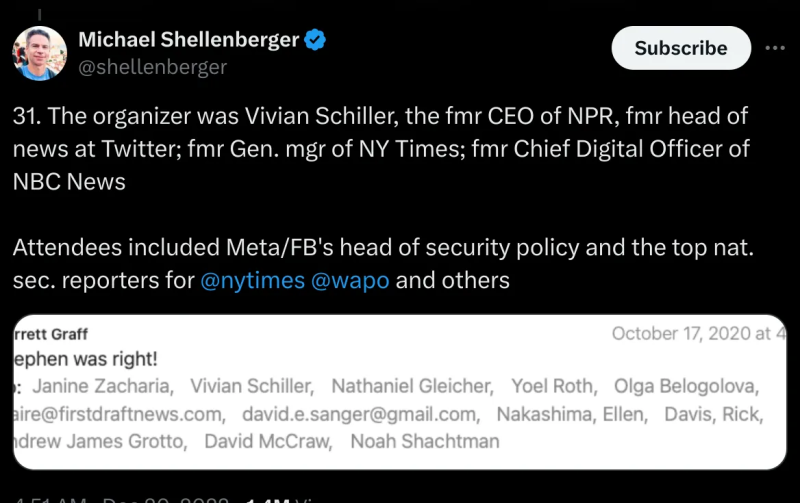

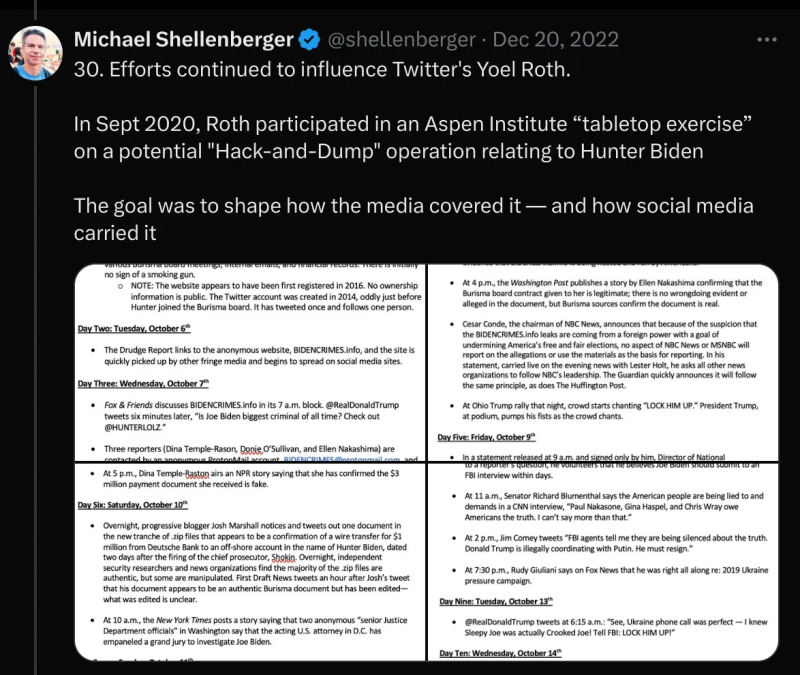

Zuckerberg, however, writes, “That fall, when we saw a New York Post story reporting on corruption allegations involving then-Democratic presidential nominee Joe Biden’s family, we sent that story to fact-checkers for review and temporarily demoted it while waiting for a reply.”
You can almost see the fall maple leaves feathering their way innocently to the forest floor.
“It’s since been made clear that the reporting was not Russian disinformation, and in retrospect, we should not have demoted the story.”
But there was no surprise, as Facebook had participated in the Aspen exercise two months before the story broke.
Even for Aspen’s Garret Graff, who coordinated the exercise, things went even better than planned:
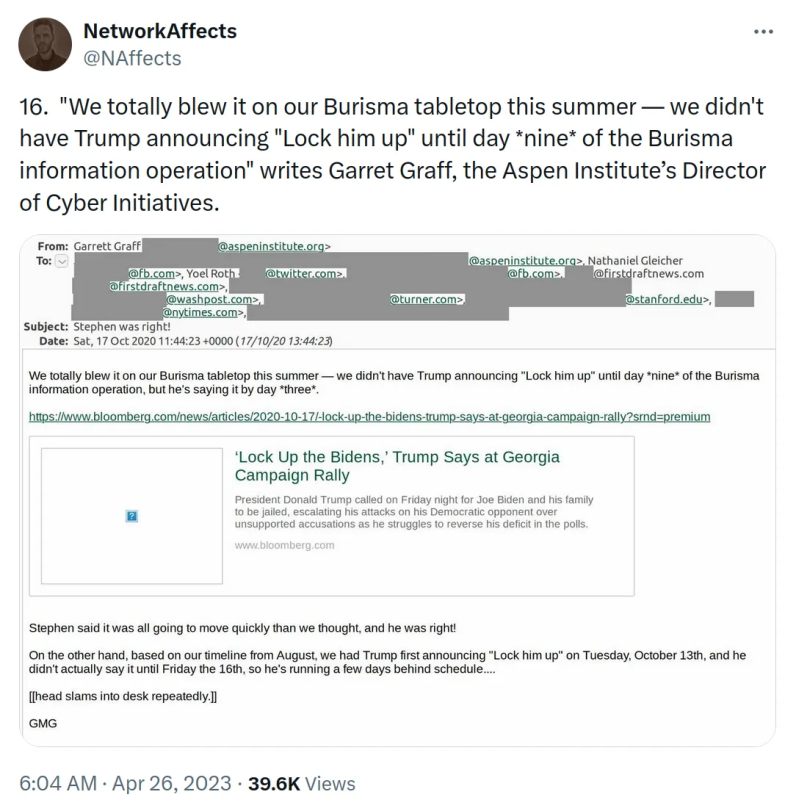

Regarding Covid-19, Zuckerberg says the government “repeatedly pressured” Facebook to “censor.” Regarding the Hunter Biden laptop, he only mentions they were “warned” “about a potential Russian disinformation operation.” There is no mention of pressure to censor. Did the federal government push Facebook to attend the Aspen Institute exercise? It seems they attended of their own volition.
Attending the Aspen suppression planning for Facebook was Nathaniel Gleicher, “head security policy at Meta,” who continues in his position to this day. The Twitter Files show Gleicher also met regularly with the Department of Defense (DoD) and FBI, and participated in a Harvard-led pre-election tabletop with the DoD whilst the Hunter Biden story was being suppressed on Facebook.
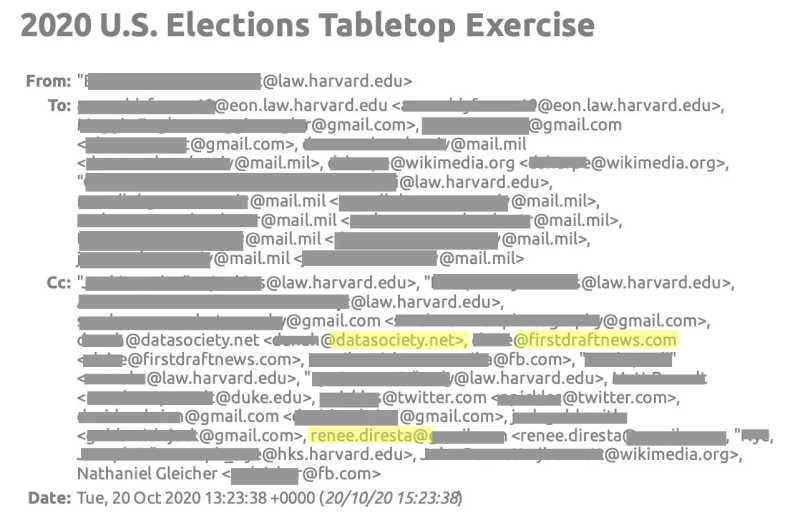

Surely someone as senior as Gleicher, tasked as he was with such sensitive and high-level contacts, would have told his boss about his attendance? After all, the laptop story could have a real impact on the outcome of a presidential election.
Twitter’s Yoel Roth also attended the Aspen exercise and played a critical role in suppressing the Hunter Biden story on that platform. Did Gleicher play the same role at Facebook? Gleicher’s participation has been known publicly since Michael Shellenberger first broke that story, 18 months and more than 100 million impressions ago.
If Zuckerberg believes suppressing the story was wrong, why has he kept Gleicher in such a senior role? If he knew of Gleicher’s participation in the Aspen exercise, why didn’t he blow the whistle at the time? Instead, he places all the blame at the foot of the federal government. No doubt they exerted pressure, but that does not appear to be the whole story.
Is Zuckerberg attempting to absolve himself of responsibility?
Republished from the author’s Substack
Join the conversation:


Published under a Creative Commons Attribution 4.0 International License
For reprints, please set the canonical link back to the original Brownstone Institute Article and Author.
